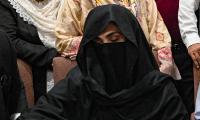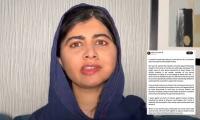Comment
By Mehtab Haider
ISLAMABAD: With continuous decline on economic front, the PTI-led government is largely relying upon conventional and old wisdom focusing on raising tax rates and utility prices instead of tackling underlying structural problems.
In the latest classic example to understand the government’s economic and fiscal policies, in a bid to avoid passing on full benefits of decreased oil prices in international market to the consumers, the PTI government jacked up general sales tax (GST) rate at standard level of 17 percent with effect from today (Tuesday). Earlier, the government had kept GST rate on lower side, but now it was brought at standard level of 17 percent for both petrol and diesel from January 1, 2019. Earlier, the GST on petrol stood at 8 percent and diesel at 13 percent, but now it has been jacked up to standard rate of 17 percent with effect from today.
In the wake of increasing budget deficit because of inability of the government to raise revenue and curtail expenditure simultaneously, the government is left with no other option but to generate taxes through increasing tax rates in upcoming mini budget which the government plans to present before the Parliament around mid of this month. The prescription of the PTI-led regime will be the same as tax rates will be hiked as was done by the PML-N government in last five years.
The PTI government has come up with prescriptions of confusing signals in second half of 2018, rather it can be termed as directionless so far on major structural problems on front of raising taxation through broadening of narrowed tax base, overhauling public sector enterprises, especially cash bleeding power sector and undertaking any step towards bureaucratic structure under much needed civil service reforms.
With culmination of all these directionless policies, the economy is all set to witness declining trends in GDP growth and hike in inflationary pressure in 2019.
The CPI-based inflation on monthly basis will be standing in the range of 7 percent today (Tuesday) when the Pakistan Bureau of Statistics (PBS) will be releasing its monthly figures. The GDP growth for the ongoing financial year is projected to fall sharply and will be standing at around 4 percent of GDP for 2018-19 against 5.8 percent achieved in last financial year that was highest of last 13 years.
In the name of stabilization of economy, this outgoing year 2018 witnessed 40 percent devaluation of rupee against dollar, hike in discount rate by 425 basis points, rising twin deficits to historic levels in absolute figures, falling foreign direct investment and rising inflation.
Now the possible IMF programme will be folded with prescription of “one shoe fit for all” conditions under which tight noose of scrutiny will suppress demand into the national economy resulting into choking growth trajectory and raising CPI-based inflation in coming months of 2019.
The PTI-led government argued that it inherited highest ever twin deficit in absolute terms as the budget deficit stood at 6.7 percent of GDP and the current account deficit was in the range of over $18 billion. With massive holes on twin deficit, the government requires huge adjustments in order to bring down the budget deficit and current account deficit.
On the positive side, the government claims that it has managed external financing and there is no urgent crisis. After achieving this task, the PTI should be in position to utilise this breathing space for overcoming structural problems because if time was wasted for next six months then the problems of budget deficit will surface with more force paving the way for second round of instability, rising debt, unemployment and increasing poverty with rapid pace. So the time is short and there is long list of things require to be done in the menu in 2019.
According to the CTD spokesman, the two were attempting to enter Punjab from Khyber Pakhtunkhwa
Foreign Office's silence on the US threat to impose sanctions on Pakistan for economic agreements with Iran
President Zardari express views while talking to the visiting Chairman of China International Development Cooperation...
Kundi emphasised that recent electoral outcomes indicated a public preference for parliamentary cooperation over...







